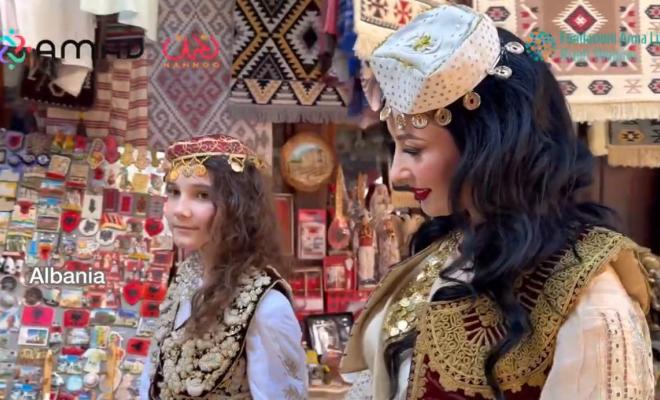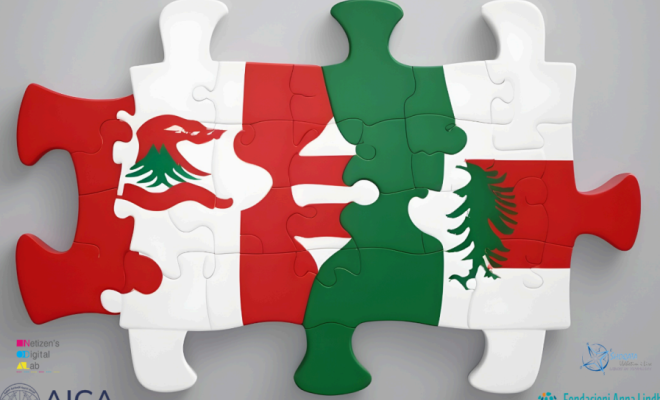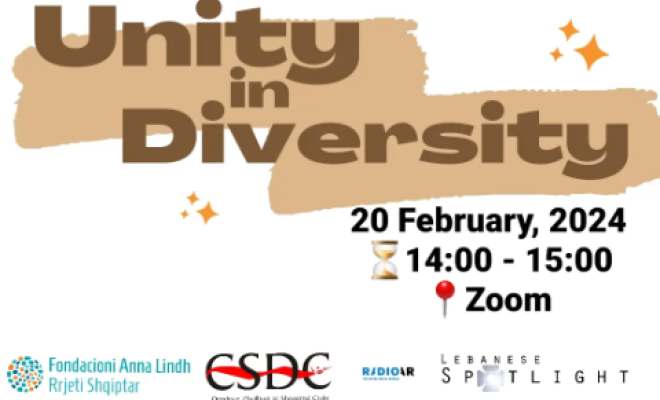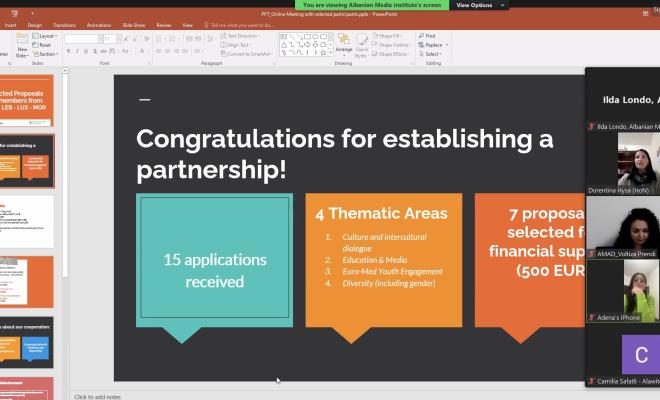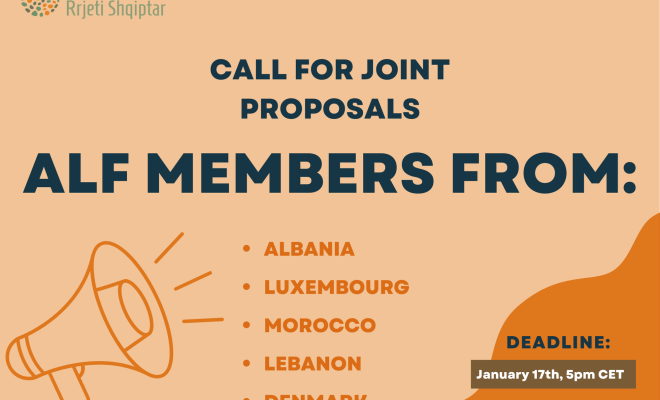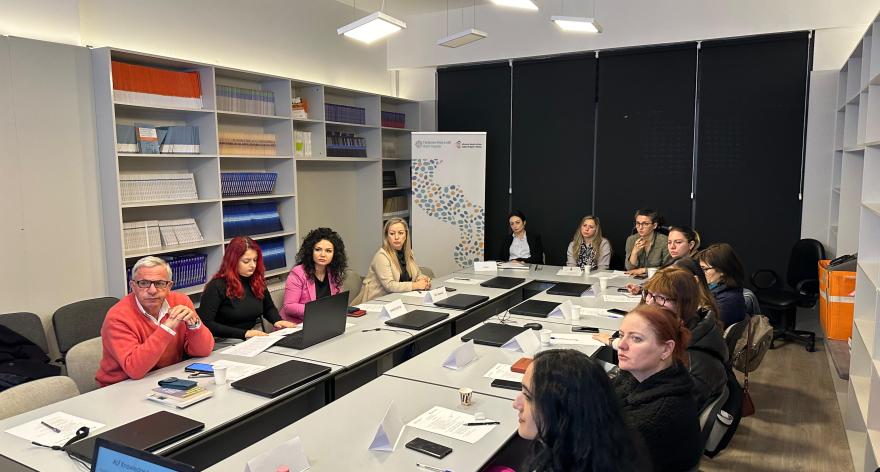
The national Network of Anna Lindh Foundation in Albania was established in 2008 with the purpose of contributing to the promotion of Intercultural Dialogue in the Euro-Med region. Albania shares Mediterranean identity and values, which include promotion of peace, tolerance and dialogue between cultures.
The ALF Network in Albania is composed of 53 member organizations based in different regions and districts of Albania. The members of the national Network come from different backgrounds and have expertise in several sectors including human rights, arts, democracy and community development, gender, heritage, media, international/cultural relations, research, youth and education, environment/sustainable development and religious studies.
The key strength of the Albanian network is the variety of members, disciplines, sectors and areas of expertise that creates a rich structure capable of sharing best practices and experience within our national Network, and with Networks of other countries. However, the CSOs face challenges in terms of funding and extending partnerships within the Euro-Med region.
The Network priority areas for development in the Euro-Med level include: capacity development in the field of Intercultural Dialogue; extended partnerships at Euro-Med level especially with the Southern partners of the Mediterranean; support for democracy and community development; support for cultural and educational exchanges and initiatives for youth engagement and activism.
ALBANIAN MEDIA INSTITUTE
RRUGA GJIN BUE SHPATA, NR 8
1019
TIRANA
Albania
The national Network in Albania joined the Anna LindhEuro-MediterraneanFoundation in 2008, approximately 14 years ago. The Albanian Ministry of Foreign Affairs initially appointed the Albanian Forum for the Alliance of Civilizations (AFALC) as the first Head of Network and its mandate was renewed in 2010.
The AFALC is a non-governmental organization created in July 17, 2007. Together with other similar initiatives worldwide, the AFALC responds to the broad consensus among nations, cultures and religious beliefs that all societies are inter-dependent in their endeavours for development, security and economic prosperity.
In February 2020, the AFALC was replaced as Head of Network by the Albanian Media Institute, appointed for three years.
The Republic of Albania ratified the UNESCO Convention on Cultural Diversity on 17.11.2006 and since then, the Ministry of Culture of Albania and its public institutions have undertaken policies and plans to implement the obligations deriving from the Convention.
In broad terms, the main objective has been to strengthen the role of culture in the policies and programmes compiled by the Ministry of Culture of Albania (MoC), which is the main institution responsible for implementing the Convention by strengthening the contribution of culture to sustainable development and increasing collaboration with other countries in the cultural dimension. At the same time, intercultural dialogue is being promoted through the implementation of different projects, awareness-raising activities and exchanges of good practices.
The MoC has increased its efforts to support the flourishing of cultural expressions according the principles of Article 2 of the Convention by:
- establishing a yearly grant for financing of cultural activities
- introducing schemes to promote artistic creativity
- increasing international cooperation and intensifying cultural exchanges
- creating the necessary conditions to preserve and transmit cultural expressions to future generations
- involving the civil society and especially the youth in all cultural policy and legal framework debates
- intensifying interministerial cooperation
- supporting digitization of cultural expressions and their bearers
- initiating and participating in exchange and artists-in-residence programs, as well as participating in EU related programs
- increasing collaboration with the local government
- increasing fund raising efforts and foreign investments
In addition to the government’s actions, attention to intercultural dialogue has also been given by civil society organizations, including members of our Network. These organizations have designed and implemented projects that lead young people on the path towards reconciliation and regional cooperation by using intercultural learning competences and non-violent communication. For example, IRCA has worked for several years to document cultural heritage in Albania and organized 34 open lectures and sessions in universities and schools, educating on intercultural dialogue and Roma Culture. Furthermore,RYCO is a supportive network for promoting cultural dialogue in Albania and its neighbours at the regional level.
To sum up, the intercultural and religious dialogue in Albania is reflected in the national Network and will be promoted throughout.
